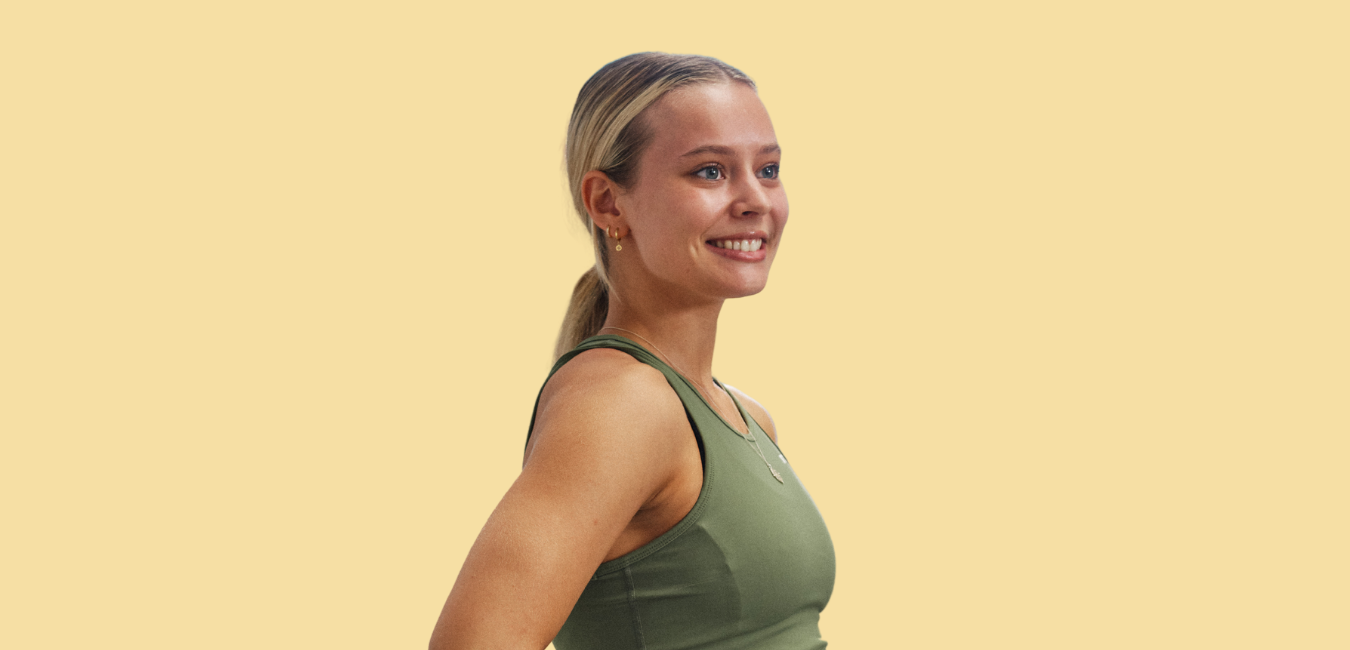
How to talk to your teen about their skin
Is your tween or teen’s skin breaking out? Make skincare education a fun moment to share, not a chore.
Tweens and teens are beauty-savvy and the idea of talking to a parent about skincare may just sound as exciting as a lesson from their 60 year-old social studies teacher.
Skin education doesn’t have to feel like, well, education. Teaching your tween or teen about their skin can be playful and meaningful. It’s all about how you do the talking.
Feeling the pressure? Don’t, we’ve got you covered.
You may not like to hear this but the truth is that tweens and teens know a lot more about skincare than you probably knew at 20, courtesy of the hours spent watching tutorials on skincare and make-up on YouTube and social media.
So, before you approach the topic, keep this in mind. In their minds, they don’t need you to tell them about skin, they know it all already.
The problem is that in fact what they know is content that largely targets a slightly older age bracket – and skin issues. A lot of influencers are in their early twenties and their advice is highly likely not fit for a younger skin like your tween’s or teen’s.
Knowing this is important because it helps to understand where your tween or teen stands in their skin knowledge.
Just don’t diss the influencers because a) it would make you sound like an old bore, b) it could crush their fan feelings and c) influencers have good advice too!
Tweens and teens are very sensitive and likely to take everything you will say about them negatively and react in a defensive manner so always hold back a little and be mindful of their feelings.
So, what do you say to your child when their skin is breaking out for the first time?
Firstly, listen
It’s tempting to profess but hold back. Listen and ask questions that give you cues about how they feel about their skin. If they have acne, ask them how it makes them feel.
Ask them about what they currently do and what they read or saw online that they feel they should do. That will give you insights on where they could go right and wrong so you can guide them better.
Don’t blame them for picking spots, simply explain factually what happens when they do.
Focus on sharing knowledge instead of lecturing. The line between the two is very fine but when you keep your delivery factual, without judgement, you will be heard more clearly.
Keep it simple and factual
Teach them that their skin is their largest organ and what its function is, to regulate their body temperature, to protect their internal organs and to enable their sense of touch so they’re safe. By framing the conversation around health, they will better appreciate why having a simple but healthy routine is important. By understanding that their skin changes throughout life, they will also understand more about why adapting their skincare routine to different stages in life is important. Just make sure to keep it simple. You can have the conversation in chunks of info spread out across a week or month, so they don’t feel bombarded with a skincare lecture.
Also, constantly ask them questions so you can correct misconceptions they may have about their skin or skincare.
For instance, ask them how they think pimples grow. It’s a good way to talk to them about oil production, sebum and why natural oils aren’t bad per se but how, when it’s left to harden in their skin pores, bacteria settle in and ouch, pimples flare up. Place everything you tell them into context so they can visualise the info, the issue, and the solution easily.
Pores? “Your skin’s tiny holes/openings that act like little vents or your body’s AC”. Harden natural oils and bacteria? “Less of a problem if you shower after a sweaty netball practice”.
Share how you felt – and why they’re ahead of you
Telling them how you felt about the skin at the same age and what you learnt the hard way can be helpful. Keep it short and sweet so they don’t cringe. Remember it’s not about you but them so don’t go too far down memory lane. The objective is to show them you’ve made mistakes too and that they have more knowledge than you do now. Praising them goes a long way.
Walk the talk
Stop and consider your own skincare routine. Teens may not openly show you that they notice what you do but the truth is that they model a lot of their behaviour on their parents – that’s right, they mimic you too, not just YouTubers or social media.
Are you doing what you tell them to do when it comes to skin maintenance and health? As stress is a culprit for skin issues, also ask yourself how you react when you’re stressed. Do you show them how to control stressful situations or are you in permanent crisis mode? Teaching them how to take deep breaths when something is going wrong or when stress starts mounting will help you as much as it will help them. Looking at skincare as a moment to unwind and wellness is also a positive message.
Show them how to cleanse and apply skincare properly
Without sounding like a lecturer, show them how you clean your face. Make the moment natural. You can simply invite them to follow you in the bathroom so you can chat about their day. There, ask them questions about what happened at school or at sports or simply about their friends, favourite gamer, YouTuber so it’s a moment about them. Then, without fuss, start cleaning your face and show them quickly how to do it fast and why the neck and earlobes are part of the routine too.
Keep the descriptions simple and call your routine a catchy name so they retain the info easily. Think of it as a simple system or guide you give them.
Because we know you’re busy, we’ve come up with an easy system that you can teach your tween or teen:
The daily 4:
1. Wash your skin twice a day using warm water and a mild cleanser.
2. Pat dry your skin – never rub. Rubbing is what gives you painful blisters when your socks and shoes rub on your skin, so never rub!
3. Apply moisturiser. That’s your skin’s food. If you want it to be healthy, feed it well. Super Nice Mānuka Honey & Vitamin E Face Moisturiser is nourishing, protective and anti-bacterial all at once with a scrumptious formula of jojoba, coconut, avocado and rosehip oils as well as Mānuka honey (the Rolls of honeys).
4. Protect your skin. Apply sunscreens to avoid sun damage and painful sunburns.
The Plus One – This is what they can do once or twice a week:
- During the winter months, when the combination of the outside cold and the school rooms heating dries your skin, apply a face mask to boost hydration. We love Treat Yo’Self Very Berry Hyaluronic Hydration Jelly Face Mask to keep your skin protected with antioxidants and full of plumping moisture with plant-derived hyaluronic acid.
- When your skin feels congested, give it a deep clean treat such as It’s a Vibe Kiwi & Avo Face Mud Mask, which is both replenishing (your skin’s ahhhh moment of bliss) with nourishing avocado and kiwi seed oil and detoxifying with kaolin clay, which literally draws out all the impurities stuck in your pores.
When should you initiate the conversation?
It’s never too early or too late to talk about skincare. We are not saying you should push a 9-year-old or teen to a multi-step skincare routine or make skincare just about products. What we are talking about is to educate your child on why it’s important to care for their skin. Telling a 3-year-old what the sunscreen you apply to their face is important is already teaching them about skincare.
Extra tips to help your tween or teen keep their skin healthy:
· Make it easier for them to stick to a routine and healthy lifestyle. Cut out unhealthy snacks from your grocery list and instead stock up on fruits and vegetables. Wash and cut fruits and vegetables so they’re ready to snack on.
- Make morning smoothies a new habit for everyone. It’s an easy way to get their vitamins and nutrients in – and make teens eat veggies they may not touch otherwise. Hello iron-rich kale, hidden by the sweet taste of potassium-packed banana.
- Wash their pillow cases twice weekly to keep bacteria at bay.
- Encourage them to keep their phone clean – they may not put it close to their face as often as you do because teens don’t actually use their phones to call, but all the tapping and swiping means their screen still picks up germs all day long.
- Make sure they shower after working out so bacteria is zapped away before it can cause havoc. Place face products that keep oil at bay, such as Oh So Extra Pineapple & Coconut Face Cleanser, in their shower so skincare is easier for them. Removing any extra step is a winning strategy, teens are not always slack, their brain is still developing and it’s a tiring process, which is why adults think they are lazy.
It’s ok if they prefer to talk to someone else
It’s hard to let go but remember that your teens are individuals, not an extension of yourself. Becoming more independent also means thinking more independently and looking for outside support at times. As difficult as it may be for any caring parent, making sure your child can have safe conversations with someone else if they need to is important and useful - newsflash, teens are right, parents don’t know it all. Safe is the keyword here. If they want to talk to someone else, they will. So, support safe avenues (versus random social media chats). Talking to their GP about their skin can be helpful and they can also talk freely to professionals who are trained to help at Youthline 24/7 for free. Simply guide them towards safe places and remind them that nobody will ever judge them there.


